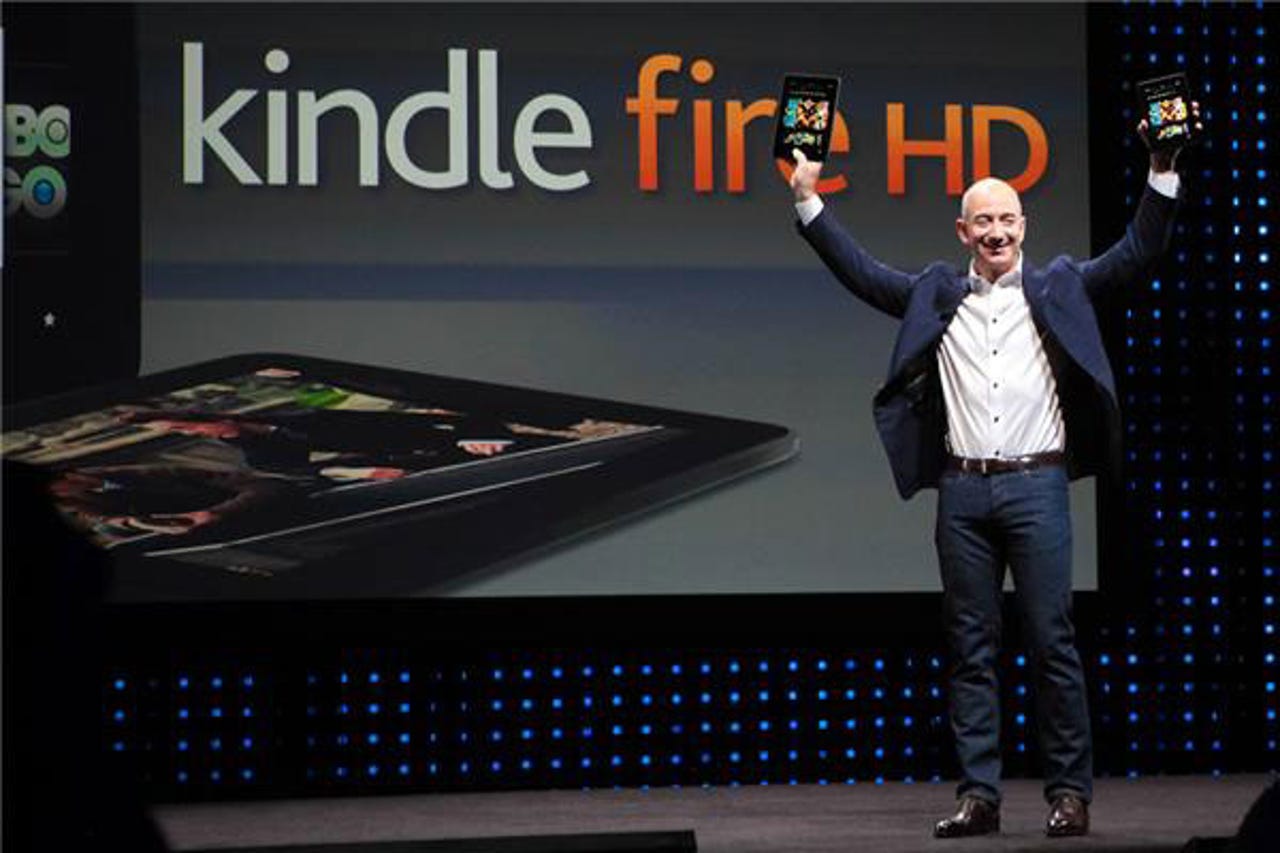Amazon's Kindle Fire HD launch: What the analysts are saying


Analysts have bought into Amazon's Kindle Fire HD strategy, which revolves around services over hardware, and bet that the e-commerce giant can leverage its unique advantages.
Here's a look at how analysts are handicapping Amazon's revamp of its Kindle family.
Macquarie analyst Ben Schachter gets quote of the day: "Differentiated: Only Amazon can deliver cat food with that tablet." He elaborated in a research note:
While we have had no hands-on testing yet, it appears that Amazon has significantly raised the bar for its e-readers and tablets. AMZN clearly wants to compete across the spectrum, not just on the low end of the market...Given AMZN?s investments in hardware, content, services, and support, along with a focus on interoperability, it only makes sense that Amazon will move beyond ereaders/tablets to also, over time, develop phones, TV?s, AppleTV-esqe products, and others. Amazon will be a very different company a few years from now.
More: Amazon's gadget as a service theme: Hardware becomes irrelevant soon | Amazon's Kindle Fire HD family: The highs and lows you need to know | Amazon's Kindle Fire HD will give Apple's iPad fits | Amazon just put Android tablets on notice with the Kindle Fire product line | Amazon changes the game in tablet market with Kindle Fire HD pricing | CNET: Amazon's new Kindles: Everything you need to know | First take | Full coverage | Amazon statement
Gene Munster, an analyst at Piper Jaffray best known for his Apple coverage, said:
We believe the 9" Kindle Fire could account for 5-10m units in CY13 or 5-7% of the 9-10" tablet market. Amazon's strategy is to sell breakeven devices that allow customers to access profitable Amazon services...One important note to the Kindle release is that both the Kindle Fire and Fire HD 7" will be available in the UK, Germany, France, Italy and Spain. This is the first time the Fire will be available in Europe and should help to drive adoption of the Fire and Amazon's ecosystem. International sales are over 40% of Amazon's sales and we believe international represents ~25% of current traditional Kindle ownership.
Barclays analyst Anthony DiClemente noted that Amazon's move into the high-end market is notable. He said:
Amazon’s choice to attack the higher end of the tablet market surprised us; however its new industry leading hardware and software updates paired with aggressive pricing and “the world’s best content ecosystem” (as we believe its streaming content through Amazon Prime gives it a leg up over iTunes) could make it a force in premium tablets. Amazon remains laser focused on driving digital media sales and mobile eCommerce activity, and we believe it saw a need to more aggressively attack all segments of the tablet market as a means to this end. However we are concerned that the large array of new Kindle models has the potential to confuse consumers. While the tablet market is still evolving and the iPad Mini has yet to reveal itself, we believe the new Kindle tablets could immediately have an impact on sales of the Google Nexus 7 Tablet and others.
Jefferies analyst Brian Pitz said:
The new Kindle family is a means to an end, in our view. We think that Amazon is seeing its most successful products – the Kindle Fire and eBook reader – more as a platform for the consumption of digital content than as consumer electronics products. While we believe they are likely selling the devices at cost (or at a slight initial subsidy), we firmly believe the ensuing tie-ratios and consumption of digital content are margin accretive longer-term and are helping Amazon retain customers and build share as the world collective crosses the digital chasm.
Pitz also outlined Amazon's digital content growth.
Forrester analyst Sarah Rotman Epps said:
Selectively partnering with its competitors, and competing with its partners. Amazon's choices underscore the heated platform battle going on over consumers. In the Fire, Amazon defaults to Google search but offers a maps application from Nokia, not Google (Nokia owns NAVTEQ and considers it a key asset of its future location and commerce strategy). For productivity, Amazon now uses OfficeSuite instead of Quickoffice, since the latter company was recently acquired by Google. Amazon worked with Microsoft to launch the Fire with first tablet version of HD Skype--even though Microsoft will be coming out with its own Windows 8 tablets featuring Skype. The Fire is still built on a heavily customized version of Google's Android operating system, but Amazon's products compete directly with Google's Nexus tablets. Amazon's new data plan competes directly with its carrier partners, even as its devices push more customers to AT&T's network. Amazon's cafeteria plan for picking partners gives the company greater control over the customer experience and its overall product strategy.